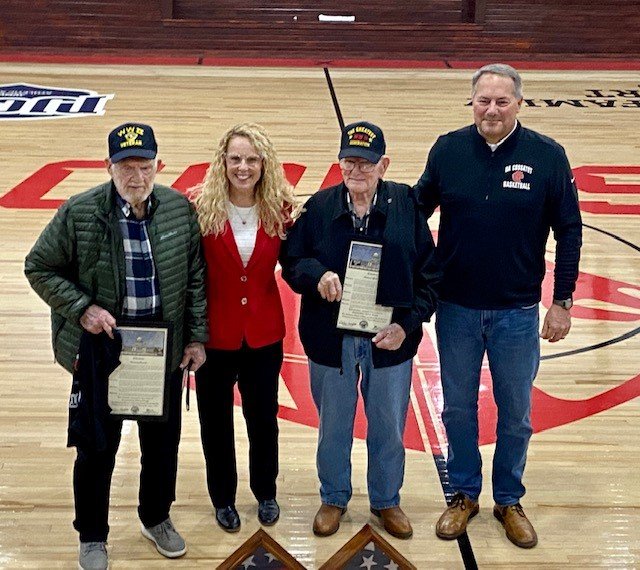After conducting a two-phase test at two universities, the results of the study found that breaking larger, more complex tasks into smaller, more manageable components enhanced student interest, confidence, skills and knowledge.
Don Johnson, University Professor of agricultural education, communications and technology and principal investigator on the project, said that when students are successful with smaller individual tasks, they have higher self-efficacy, or confidence, and an increase in interest.
“This also helps students better manage the cognitive load associated with learning about unfamiliar material and provides more and better opportunities for student success, which contributes to increased self-efficacy” he said.
Johnson and the other researchers tested self-efficacy theory using a program evaluation model that allowed them to evaluate and retest the method to make necessary improvements.
Johnson said the research team chose to study novice students’ learning about Arduino UNOs, a type of microcontroller, because of its prominence in many levels of education and the widespread use of microcontrollers as embedded computing systems in many agricultural technologies, like tractors and irrigation systems.
Johnson conducts research on human capital development and agricultural technologies for the Arkansas Agricultural Experiment Station, the research arm of the University of Arkansas System Division of Agriculture. He teaches courses through the Dale Bumpers College of Agricultural, Food and Life Sciences at the University of Arkansas.
Testing the teaching
The researchers evaluated undergraduate students enrolled in introductory agricultural systems technology courses at the University of Arkansas and Utah State University.
He collaborated with Michael Pate, associate professor of agricultural systems technology and, agricultural safety and health at Utah State University.
The study was conducted in two phases, with a pilot test taking place during the second week of the fall 2021 semester, followed by a retest at the other university later in the semester. The students received the same presentation and completed the same assignment at both universities, where they constructed LED circuits on the same breadboards and programmed the Arduino UNOs to cause the LEDs to blink on and off in a specific order at specified intervals.
The students at the pilot test university learned about Arduino UNO through an online lesson followed by a hands-on activity.
The results from the first university indicated that the traditional approach allows students to increase their self-efficacy in the task, but the researchers wanted to see an increase in interest.
“Interest is an essential part of effective learning,” Johnson said. “You can learn content that you are not interested in, but the process is neither efficient nor enjoyable.”
He also noted that students who develop interest in a topic are more likely to continue learning about the topic outside the classroom.
Based on the pilot test results, the researchers modified the teaching method with self-efficacy theory in mind. They conducted the initial lesson in a face-to-face format and integrated four hands-on practice tasks within the lesson.
With this method, the students were more engaged with their work and showed an increase in breadboarding and programming self-efficacy, interest in learning about Arduino UNO and knowledge in Arduino UNO.
Integrating the practice tasks into the lesson allowed students to make a connection between the lesson and hands-on application in breadboarding and programming, Johnson said. It also helped reduce the cognitive load while only adding about 10 minutes to the lesson.
“Professors should consider breaking big tasks into smaller, logically sequenced tasks, and then provide students with opportunities to achieve success with these smaller tasks as they build toward higher level applications,” Johnson said.
Students were proud of their work during this project, and many recorded their accomplishments on their phones, Johnson said.
In addition to Johnson and Pate, other members of the research team included Christopher Estepp, associate professor of agricultural education, communications and technology; George Wardlow, head of the agricultural education, communications and technology department; and Grant Hood, a University of Arkansas 2022 graduate who received his master’s in Agricultural and Extension Education after completing part of this project for his thesis.
The American Society of Agricultural and Biological Engineers recently published the research.
Johnson replicated the teaching method during the fall 2022 semester and found the revised instructional treatment once again resulted in statistically significant and large increases in student interest, self-efficacy, and knowledge.
To learn more about Division of Agriculture research, visit the Arkansas Agricultural Experiment Station website: https://aaes.uada.edu/. Follow us on Twitter at @ArkAgResearch. To learn more about the Division of Agriculture, visit https://uada.edu/. Follow us on Twitter at @AgInArk.




















